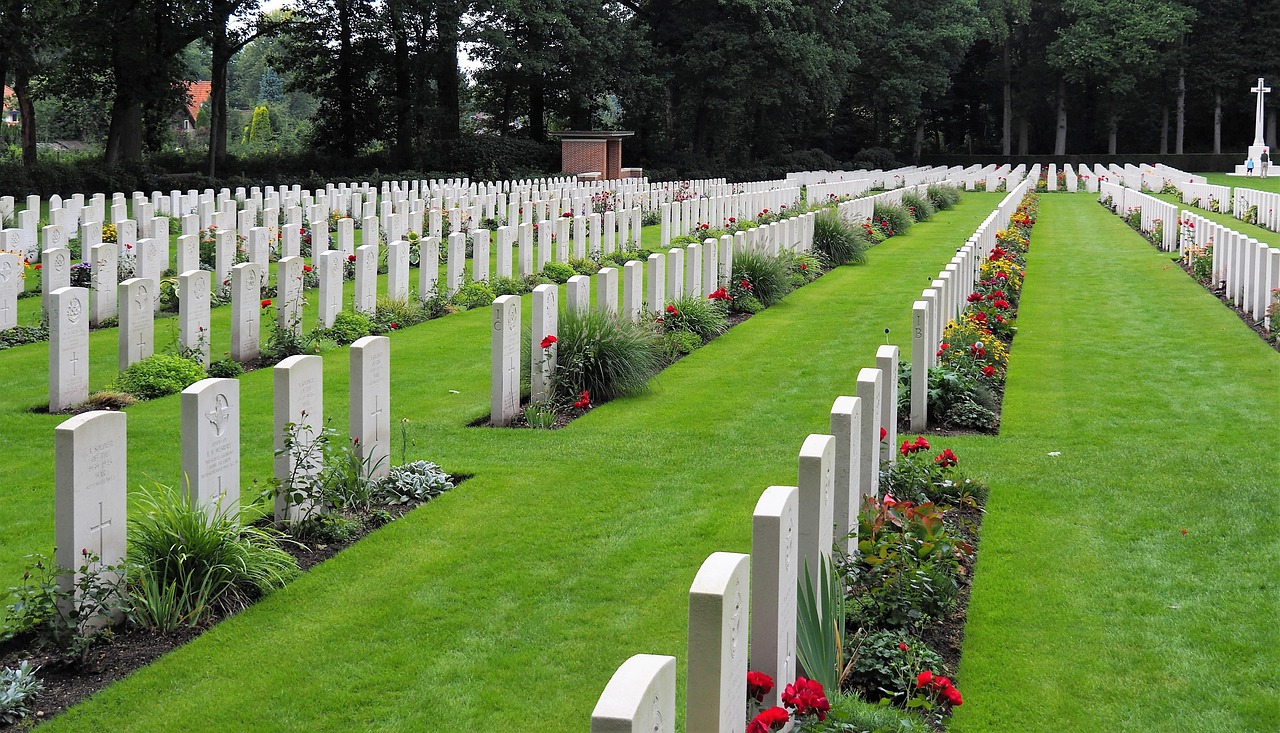For many Americans, Memorial Day weekend marks the unofficial start of summer — a time for backyard barbecues, sun-soaked gatherings, and department store sales. But behind the smell of grilled burgers and the sparkle of poolside celebrations lies a solemn tradition steeped in sacrifice, remembrance, and history that’s often overshadowed by the festivities.
It’s worth taking a step back to remember why we have this holiday in the first place.
A Day Born from the Ashes of the Civil War
Memorial Day’s origins trace back to the aftermath of the Civil War — the deadliest conflict in U.S. history, claiming the lives of over 600,000 soldiers. In the war’s wake, communities across the country began holding springtime tributes to honor the fallen. People would gather to place flowers on graves, say prayers, and pay their respects.
One of the earliest recorded observances took place in Charleston, South Carolina, in 1865, when a group of newly freed African Americans held a ceremony to honor Union soldiers who died in a Confederate prison camp. Though not widely acknowledged for years, this moment was a powerful gesture of remembrance and gratitude.
In 1868, General John A. Logan, leader of a Union veterans’ organization, officially called for a nationwide “Decoration Day” on May 30. The date was chosen because it wasn’t the anniversary of a particular battle, allowing Americans to collectively mourn their dead without association to a specific conflict.
From Decoration Day to Memorial Day
For decades, Decoration Day was primarily observed to honor those who died in the Civil War. After World War I, the holiday expanded to recognize American military personnel who perished in all wars. The term “Memorial Day” gradually gained popularity, and in 1971, it was declared a federal holiday, observed on the last Monday of May.
While its name and scope evolved, the heart of the holiday remained constant: remembering those who made the ultimate sacrifice in service to their country.
Traditions That Endure
Memorial Day traditions run deeper than the sound of sizzling hot dogs and the thrill of a three-day weekend. Across the nation, ceremonies at cemeteries and war memorials pay tribute to the fallen. Flags are lowered to half-staff until noon, then raised high to symbolize the nation’s resilience and commitment to never forget its heroes.
At Arlington National Cemetery, one of the most poignant rituals unfolds as soldiers from the 3rd U.S. Infantry Regiment, known as “The Old Guard,” place small American flags at each of the more than 260,000 graves in a practice called “Flags In.”
Many families visit the graves of loved ones, leaving flowers and tokens of remembrance. Others observe a moment of silence at 3 p.m. local time, the National Moment of Remembrance, a simple yet powerful pause to honor the day’s true meaning.
More Than a Holiday — A Responsibility
It’s easy to get caught up in the long weekend’s excitement — road trips, retail deals, and lake house retreats. And while celebration is part of what makes life sweet, Memorial Day also asks us to remember that freedom comes at a cost.
We don’t have to forgo the barbecue or the beach day. But we can balance joy with reflection. We can tell our children why the flags are out and the parades march. We can read the names etched in stone at local memorials or share the stories of those who served and sacrificed.
Because Memorial Day isn’t just about honoring the dead — it’s about acknowledging what their lives, and losses, have given us.
A Living Legacy
The true meaning of Memorial Day lives in remembrance and gratitude. It challenges us to look beyond our own comfort and recognize the heavy price paid for our everyday freedoms. It’s a day not just for mourning but for appreciating the liberties won through the courage of others.
So this year, when the grill is fired up and the coolers are packed, take a moment. Raise a glass to those who can no longer join the celebration. Speak a name. Share a story. And remember that behind the holiday’s surface lies a history both humbling and heroic — a story that deserves to be told, again and again.
Please like, comment, and share this article if you found it helpful and
informative.
For more news check out Big Town Bulletin News
For more from Big Town Bulletin check out Big Town Bulletin
Please like, comment, and share this article if you found it helpful and
informative.
For more news check out Big Town Bulletin News
For more from Big Town Bulletin check out Big Town Bulletin


